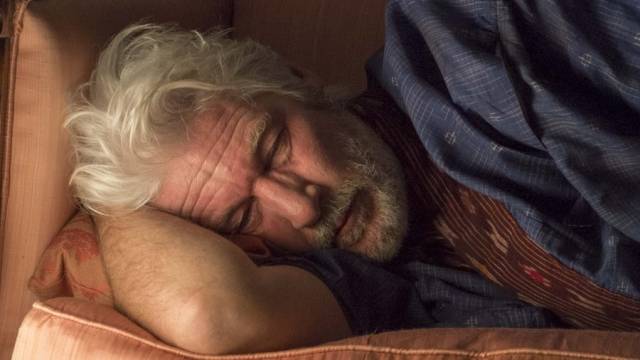
 If you crossed Patch Adams with King Lear and sprinkled a light coating of Travis Bickle, the result might be Franny, Richard Gere’s benefactor of the title. Franny has a mysterious relationship to a family, which borders on sociopathic. He seems to love them much, much more than they love him. The saddest aspect of The Benefactor (not a fault) is that no one seems to get him. As compelling as Franny is, no one knows where he came from, or how he got to be so rich and powerful without being very clever or wise. So while many benefit from his generosity, no one bothers to seek the man behind the mask. Haven’t we all met someone to whom we feel indebted, and yet are equally creeped-out and amazed by?
If you crossed Patch Adams with King Lear and sprinkled a light coating of Travis Bickle, the result might be Franny, Richard Gere’s benefactor of the title. Franny has a mysterious relationship to a family, which borders on sociopathic. He seems to love them much, much more than they love him. The saddest aspect of The Benefactor (not a fault) is that no one seems to get him. As compelling as Franny is, no one knows where he came from, or how he got to be so rich and powerful without being very clever or wise. So while many benefit from his generosity, no one bothers to seek the man behind the mask. Haven’t we all met someone to whom we feel indebted, and yet are equally creeped-out and amazed by?
Olivia (Dakota Fanning) has an odd blend of affection and subtle revulsion toward Franny— especially early in the film. In a highly anticipated scene when Franny sees her for the first time after five years, she steps away from him as he approaches. Is there something behind this, or not? In any case, Olivia seems groomed to be The-One-Who-Faces-the-Train-Wreck. However (and others might disagree), it doesn’t appear to be the climactic moment that’s been promised. In fact, we’re never quite sure how the characters are affected by one another. Here’s where the movie could have benefited much from a proper backstory. Unevenness and uncertainty plays throughout— at times there’s a tone of underlying menace, while seconds later, a light-heartedness takes over.
In a sparsely populated film, Franny most notably is the lone wolf within a cavernous realm. In those spaces, as talented as his co-stars may be, they don’t fill them the way Mr. Gere can. Instead, their characters seem tentative, as does the rest of the world, which only makes Franny that much more sympathy-worthy. As actors go, Gere is a riveting juggernaut with unlimited spin potential. His willingness to take down the house on one shoulder must be a director’s dream. One can’t help but wonder how this movie might have gone with less restraint. What if other characters had been given permission to be more courageous, rather than focusing on Franny’s appearance, or playing off his eccentricities?
As we follow Franny’s errant ways, different facets about him emerge—in one scene he even channels Gandalf—but somehow, these glimpses turn mainly into roads not traveled. Rather, the film seems to rotate and land weirdly in familiar, yet unresolved territory. Perhaps when addiction and co-dependence is embodied by such a super train wreck that is Franny, the world helplessly defers to more questions than it can answer. Maybe if we’re someday lucky enough to get The Benefactor Part II, Franny will finally meet his match.